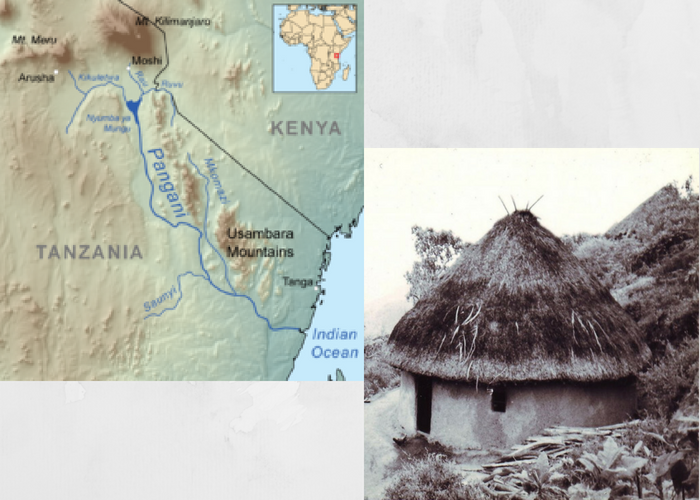Shambaa history can be divided into three periods. The first begins with the settling of Shambaa peoples in the Usambara mountains over 200 years ago and extends until the early 19th century when the Kilindi ruled. The first Kilindi king was Mbegha, an exile from neighboring Ngulu. The Kilindi ruled Shambaa territory for close to a hundred years. The founder of the dynasty was Mbegha, and his son Bughe established the hilltop capital at Vuga.
The kingdom reached its greatest extent under Kimweri ye Nyumbai. After he died in 1862, a civil war broke out over the succession, fueled by competition for the new wealth that the caravan trade in the Pangani valley had brought to the region. Around 1895, German colonial officials executed the last Kilindi king and brought about the collapse of the empire(https://africa.uima.uiowa.edu/peoples/show/Shambaa).
In the Shambaa Kingdom, in present day Tanzania the chiefs were responsible for collecting tribute on behalf of the King. The payment of tribute explained the relationship between chiefs and Kings and subjects and their rulers. The Shambaa believed that the land belonged to the King and that when subjects paid tribute they were simply giving him what already belonged to him. They did not expect anything in return from the King.
The Kings rewarded some of his subjects and loyalists by giving them iron hoes and other farming implements and livestock to help with bride price for the young men who did not come from wealthy families. This was also used to build and maintain loyalty to the King.
The King appointed these chiefs and in turn expected loyalty. The chiefs took for themselves a portion of the tribute. Tribute can be equated to our present day tax system. Chiefs were working as tax collectors on behalf of the King and they would use that position to keep some of the tribute to enrich themselves. Livestock were used as a currency for exchanging goods and services. In addition, they were used in agriculture and to pay bride price.
Livestock was precious in the lives of the Shambaa and since the chiefs routinely collected more tribute than they needed to sometimes the subjects insisted on accompanying their tribute to the King to make sure that it was actually received by the King. Payments that were made to Kings helped to finance political activities within the court. When subjects paid tribute it was regarded as a sign of loyalty to the King. Those entities or chiefs who refused to pay tribute would have their lands invaded and the leaders could be killed. Failure to pay tribute often resulted in a raid by the King’s representatives and possibly slavery in service to the King.




